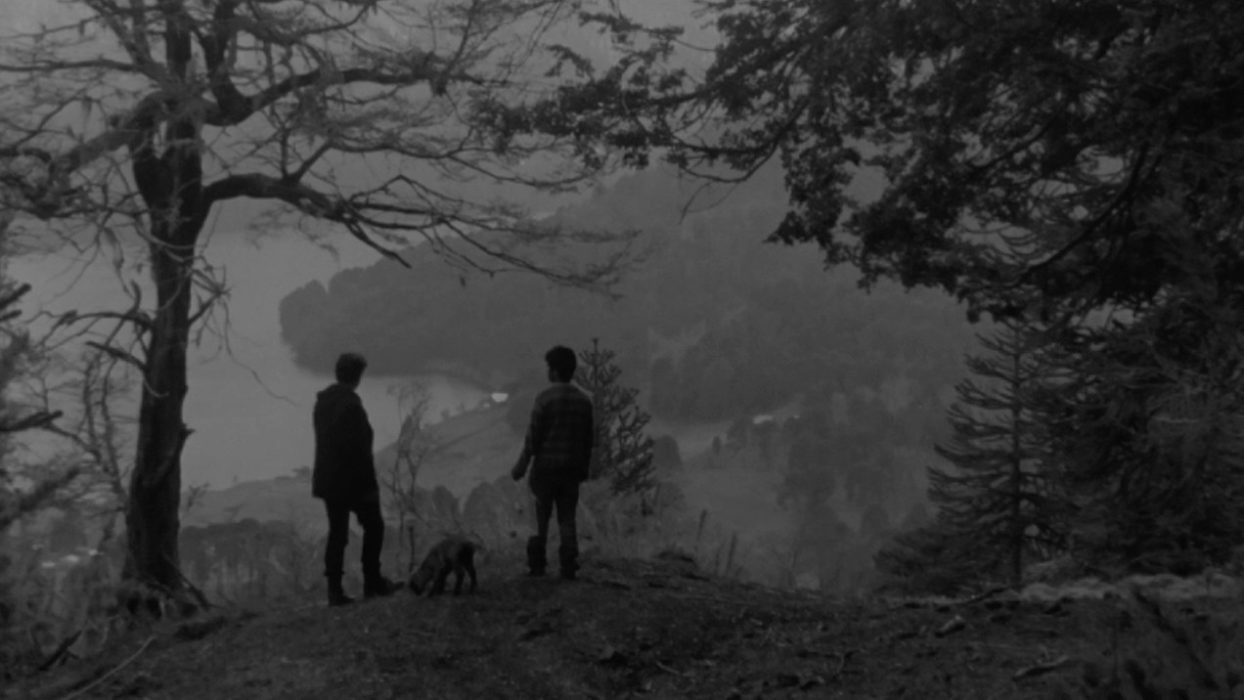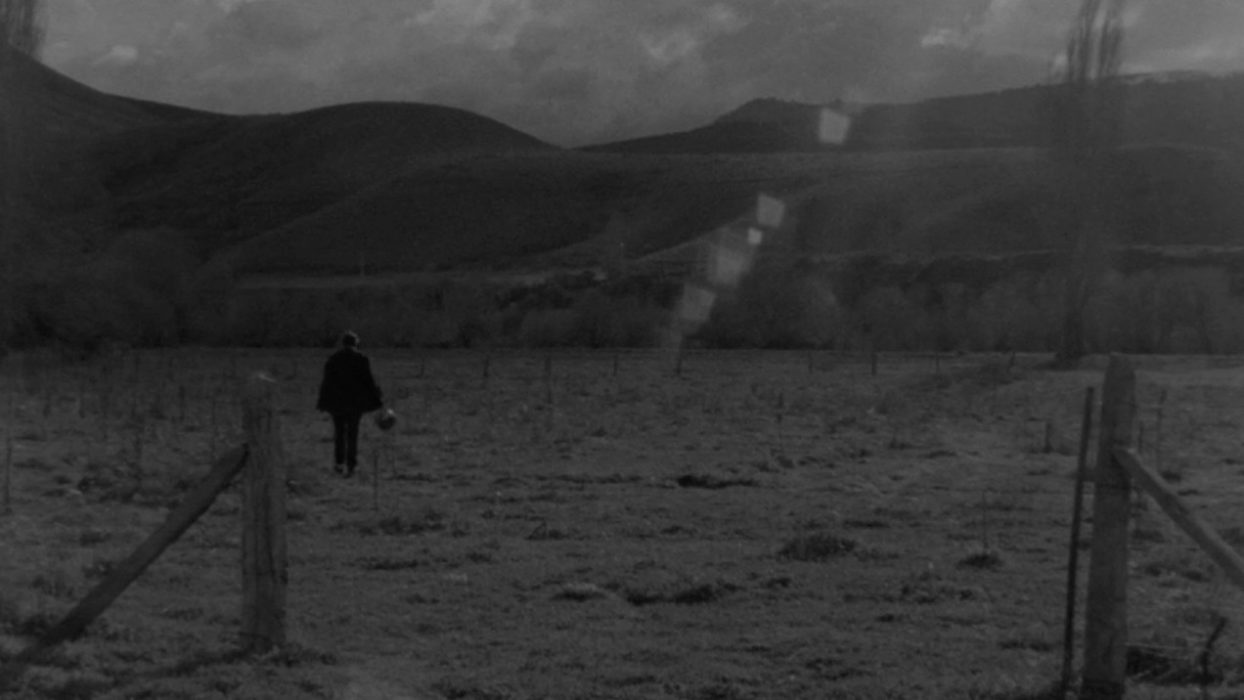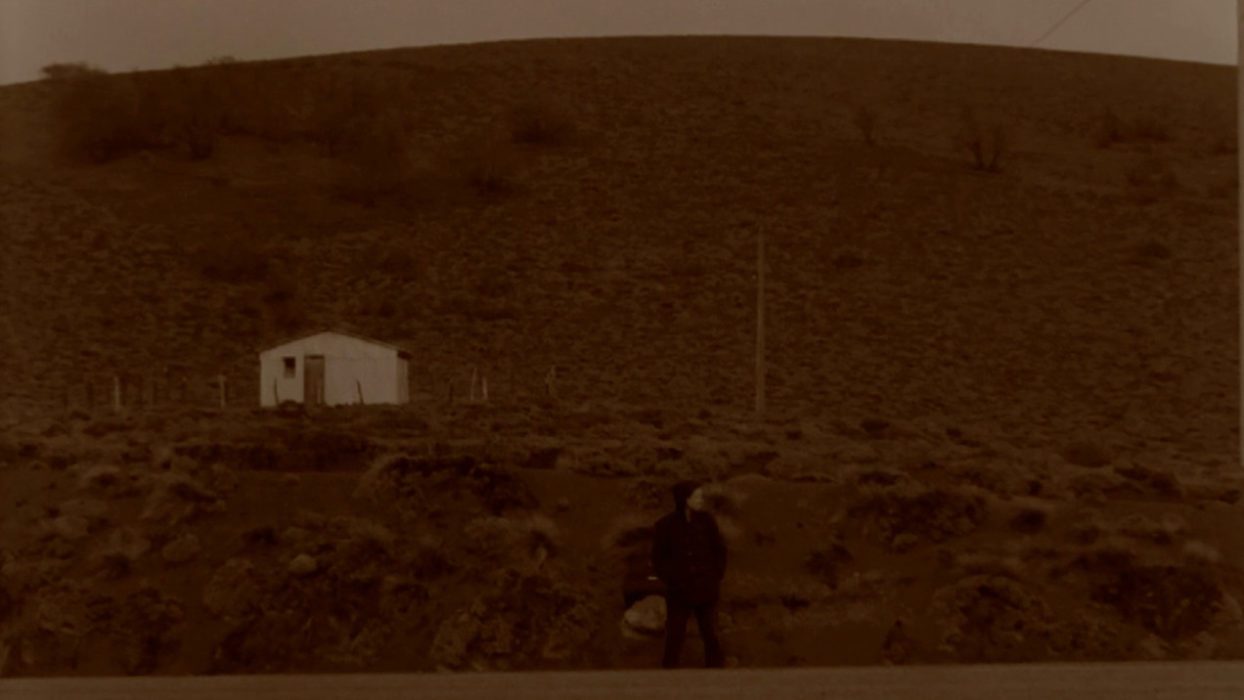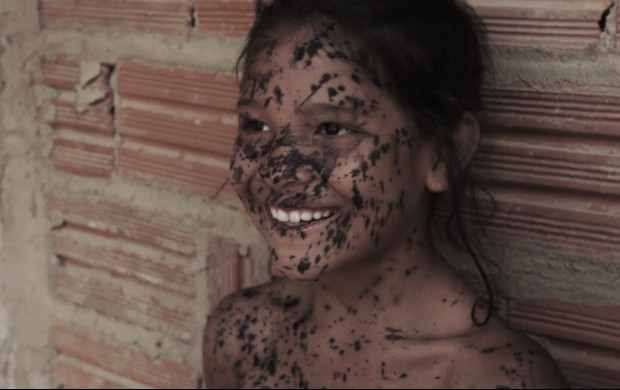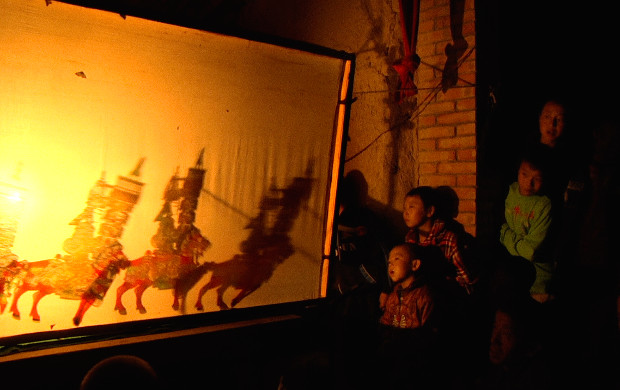[Pewen]araucaria
JORIS IVENS / CNAP AWARD
In southern Chile, in the region of Araucanía, a young poet travels through the Pehuenche territory, which still bears the scars of colonialism. “I’m entering the former Maison française, which is now a bar…” With a minimal voice-over consisting entirely of quotes, Carlos Vásquez Méndez transforms what seems to be a here-and-now landscape into a place where history peeps above the surface. If the Mapuche still perceive the Chilean State as intrusive, it is partly because nineteenth-century urbanisation left the indigenous peoples in the throes of poverty. The film is thus split into black-and-white and colour; in the centre of this diptych, the poet seems to tear himself away from his grief and reach out to meet the “Other”. In the second segment, “Frater germanus”, he addresses the biological fraternity between two Pehuenche brothers, harvesters of pine seeds. But this encounter changes everything and opens the film up to another brotherhood. This unfolds around the pine seed, the tiny fruit that gave its name to the Mapuche-Pehuenche tribe. Central to his culture, the araucaria pine trees that Don Segundo has been climbing professionally since his childhood provides the opportunity to question the point of view (“Can you see your house from here? So you keep a constant eye on your wife?”) and knock it off centre, in order to go beyond exoticism with all its misunderstanding and painful separation conveyed in the first enigmatic and solitary part. (Charlotte Garson)
Carlos Vásquez Méndez
Carlos Vásquez Méndez
Carlos Vásquez Méndez; Linda Sonego Greenway; Amanda Villavieja Garcia
Carlos Vásquez Méndez
Obrador La Faz
